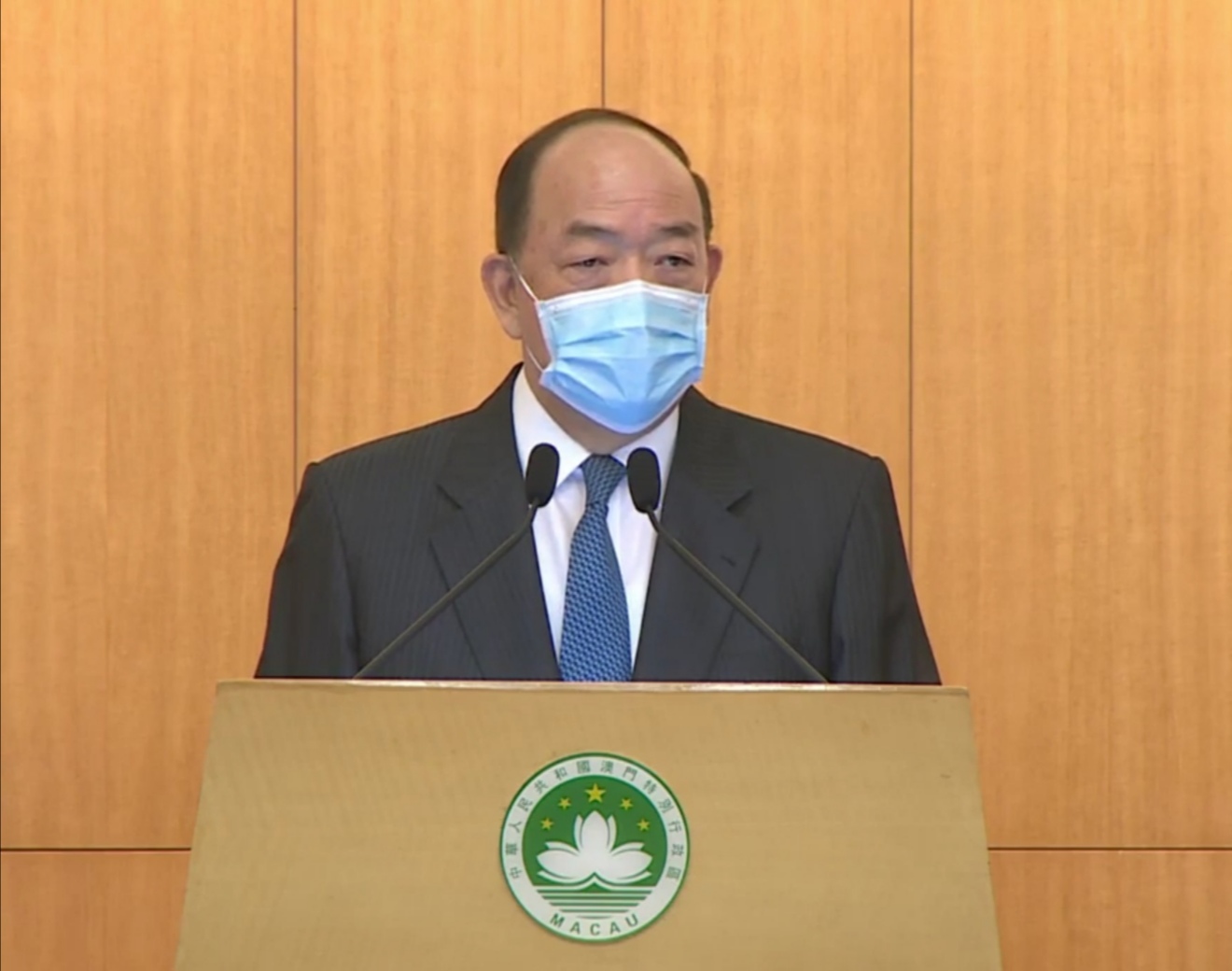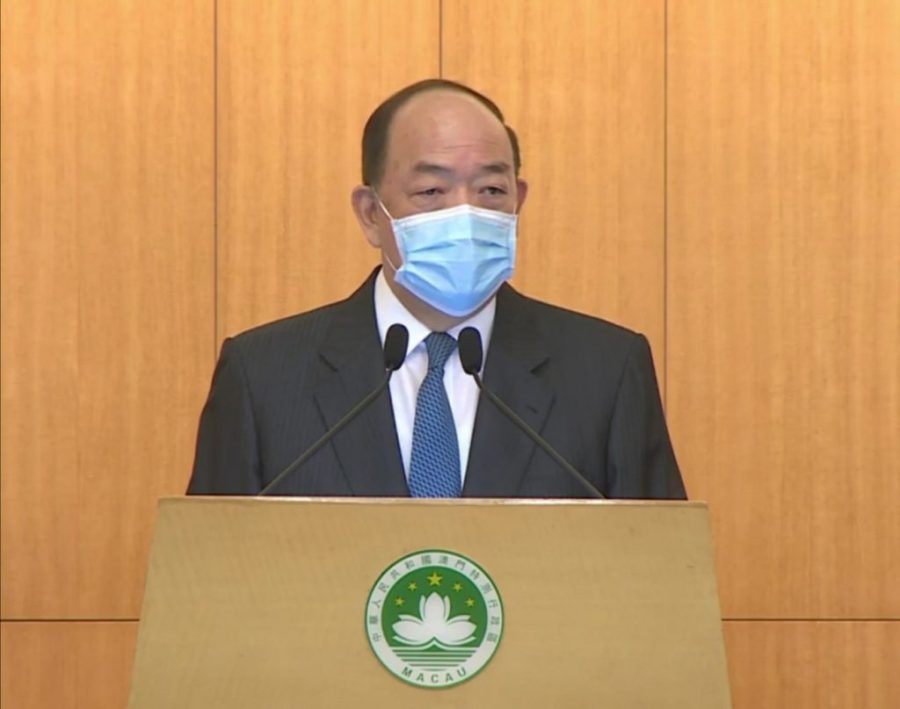Macau will close all its casinos initially for two weeks after the number of confirmed cases of the deadly novel coronavirus cases rose from 8 to 10 on Tuesday.
Chief Executive Ho Iat Seng announced the unprecedented measure during a press conference at Government Headquarters this afternoon. Ho said the timing of the measure would be announced later in the day after a meeting with the city’s gaming operators.
In the past, casinos were only closed for short periods of time — such as a few hours or one of two days — during typhoons and due to power cuts which were frequent in Macau until the 1990s.
Macau’s gaming sector trade unions had urged the government since the Chinese New Year to shut the casinos as soon as possible. The government had requested all casino workers and gamblers to wear facemasks which are relatively easy to buy in Macau. The government has said it will import 20 million facemasks for a population of about 680,000, which includes some 190,000 non-resident (imported) workers. Unlike in Hong Kong there has been no panic buying of facemasks in Macau.
Informed sources told the Macau Post Daily they expected the casinos to be closed between Tuesday night and Wednesday.
According to the Gaming Inspection and Coordination Bureau (DICJ), Macau had 41 casinos with 6,739 gaming tables and 17,009 slot machines at the end of last year (the latest official data available) at the end of last year. However, at that time not all of the casinos were understood to be operating. The 41 casinos are owned by six rival gaming operators – 22 owned by SJM, six by Galaxy, five by Venetian Macau, four by Melco Crown, and two each by MGM Grand Paradise and Wynn Resorts.
According to the Finance Services Bureau (DSF), taxes paid by gaming operators generate about two-quarters of the government’s receipts. Macau’s casinos pay 35 per cent of their gross receipts as direct tax to the government.
According to the Statistics and Census Bureau (DSEC), the gaming sector employed 57,840 people full-time at the end of the second quarter of last year (the latest official data available), including 25,213 dealers (croupiers). At that time, gaming sector employees accounted for about 15 per cent of Macau’s workforce.
According to a statement by the Health Bureau (SSM), the 9th confirmed case announced this morning is a 29-year-old Macau resident who visited the home of the city’s eighth confirmed patient on January 24 (Chinese New Year’s Eve). She came down with a runny nose, cough and fever on January 25. The symptoms disappeared afterwards. Her infection with the novel coronavirus was detected during routine testing of contacts of the eighth confirmed case.
The ninth patient has been moved to the isolation ward of the public Conde de S. Januario Hospital Centre. The SSM statement described her condition as “normal”.
The patient told the authorities that she had not left Macau in the past few days.
Another SSM statement said that the 10th confirmed case is a 59-year local man.
The 10 confirmed cases comprise seven tourists from Wuhan, who are still in isolation at the public holiday, and three locals.
The 10th case confirmed on Tuesday is a local man who visited Guangzhou on January 25 (the first day of the Chinese New Year). He returned to Macau later that day when he came down with a runny nose, cough and fever, among other symptoms. He sought medical treatment at the private Kiang Wu Hospital twice this week, Monday and Tuesday. He was transferred to the public holiday this early morning where he tested positive for the novel coronavirus.
The patient has been moved to the public hospital’s isolation ward. The statement described his condition as “normal”.
Meanwhile, during Tuesday’s hour-long press conference, the chief executive urged residents to stay at home. He also announced that the public administration will reduce its work to “urgent services” only. Ho acknowledged that Macau is facing a “serious financial crisis” but was quick to add that the government has prepared a string of measures that would be announced in due course.
Ho, who became Macau’s third chief executive on December 20, also admitted that the measures will result in a decrease in commercial activities and public transport for a period of time. However, he insisted that Macau has sufficient food supplies. He also said that due to Macau’s dependence on food supplies from outside, closing the special administrative region’s border checkpoints was not feasible. Macau imports virtually all of its foodstuffs and other merchandise. There is no farming in Macau. Thousands of Macau residents live in Zhuhai.
(The Macau Post Daily/Macau News)






